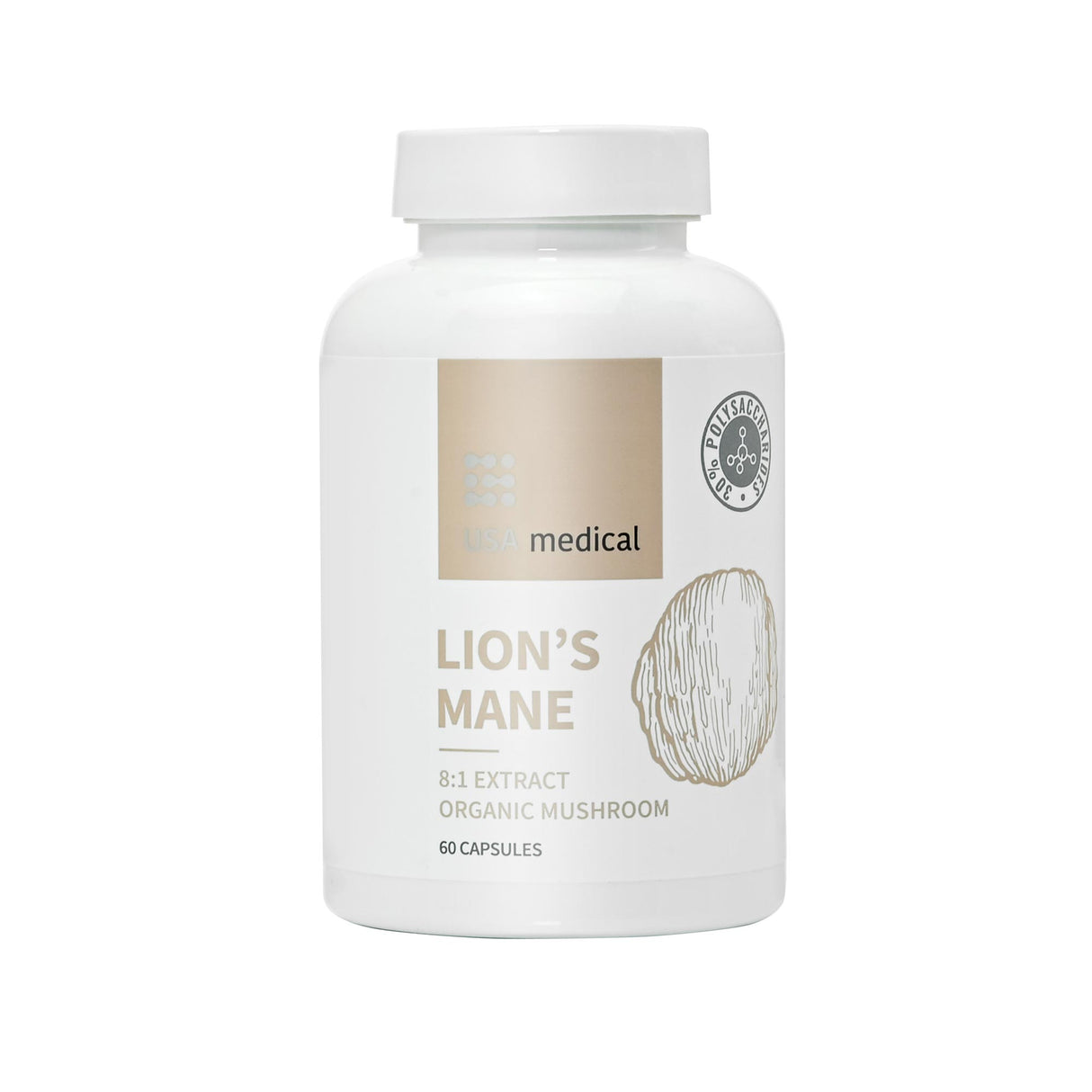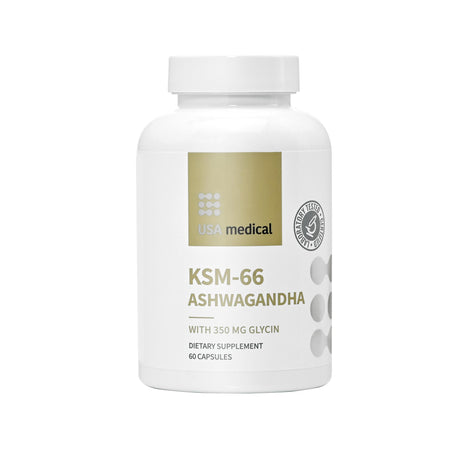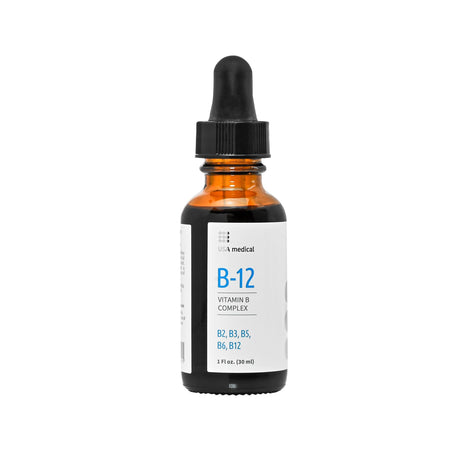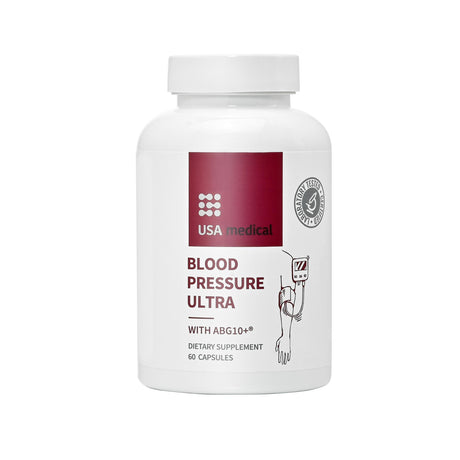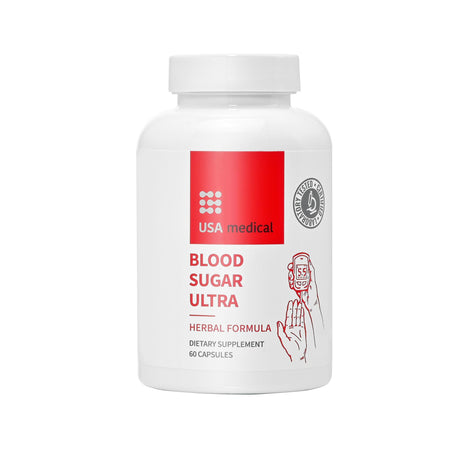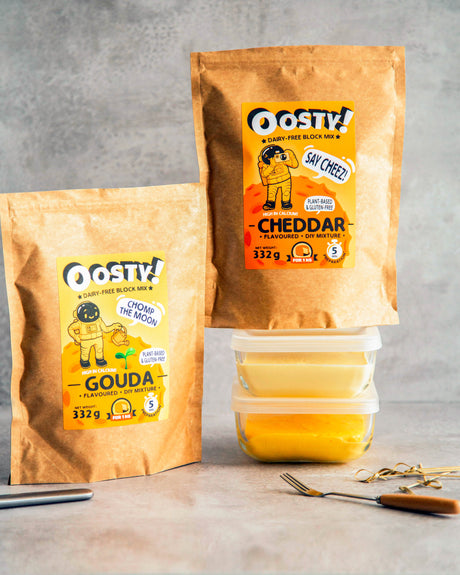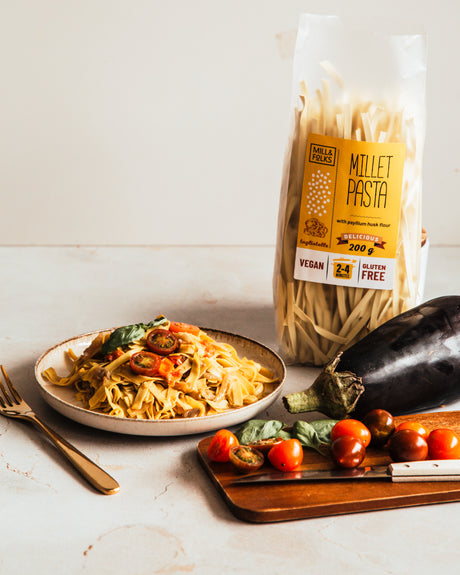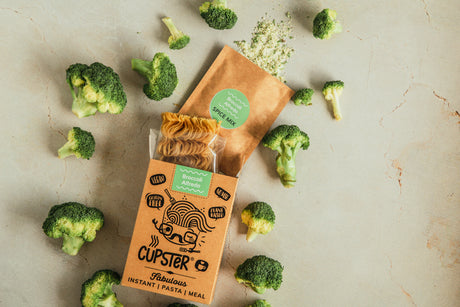USA Medical Lion's Mane Capsules 60 pcs
Express worldwide shipping available
Express worldwide shipping available
We use DHL Express shipping to deliver our products in 2-5 days worldwide.
Your Health Matters: Explore Our Top Picks!
Your Health Matters: Explore Our Top Picks!
Your health is of utmost importance to us, which is why we wholeheartedly recommend these products to you. We believe in them and are confident that they will assist you in your daily life!
Description
Description
ORGANIC LION’S MANE – The Best of the Mushroom!
Our ORGANIC LION’S MANE capsules contain organic Lion’s Mane mushroom extract, standardized to over 30% polysaccharides! For enhanced absorption, we have also added valuable acerola extract.
In crafting our product, we focused on using only the valuable extract of the mushroom rather than mushroom powder, ensuring a pure and high-quality dietary supplement for those seeking the true essence of the mushroom with concentrated polysaccharide active ingredients!
Why is our USA Medical ORGANIC LION’S MANE mushroom extract capsule different from other mushroom products? Because:
- It contains only the best part of the mushroom! “8:1” extract ratio with a concentrated active ingredient content!
- Compared to powder, the extract has approximately ten times the polysaccharide concentration.
- It is not powder, but a concentrated extract with over 30% polysaccharide content!
- It is made exclusively from organically grown organic mushrooms.
- Extra fine grinding for the release of active ingredients and thus excellent absorption.
- It is produced using the gentlest methods: the extract is obtained from mushroom powder only through hot water extraction, without using alcohol.
- The added acerola makes it even more effective, as its extract helps in the stronger absorption of polysaccharides, eliminating the need for a separate acerola supplement with the mushroom capsule!
- It contains no grains or prohibited mycelium, and is made exclusively from the mushroom fruiting body powder.
Unfortunately, many mushroom powder products contain mycelium (“root” structure) instead of the mushroom fruiting body. Moreover, these products often contain the grain on which the mycelium grows. This is an unnecessary filler with low active ingredient content.
How is USA Medical Organic Mushroom Extract Made? Careful Harvesting, Gentle Processing!
To preserve important polysaccharides, mushrooms are dried using various methods depending on their type and condition, directly after careful harvesting: partly sun-dried or in a traditional drying system for more delicate mushrooms. The wood used for cultivation is utilized as fuel, and the ash is used as fertilizer for fields. Complete processing and recycling of materials is also an important sustainability goal.
After the drying phase, the mushroom fruiting bodies are ground. Grinding processes vary depending on the type of mushroom. Some mushroom species require coarse grinding or multiple grinding steps to achieve the desired fineness due to their nature.
The Extraction Process
The extremely fine powder is obtained through a particularly effective “shellbroken” method, which breaks the cell walls of the mushrooms. After processing, our powder has a particle size of less than 0.125 mm, making it exceptionally high-quality and biologically usable.
Thanks to this fine grinding, the components are particularly well absorbed in the body. Coarse powder and grits are hardly suitable for dietary supplement intake as the body has difficulty utilizing the components in this form. Crushed medicinal mushrooms, for example, can be used to make teas. The extraction, which uses hot water, ensures the biological availability of important components from the mushroom extract. The subsequent filtration and centrifugation remove fibers and other insoluble substances. From 100 kg of dried mushrooms, only 6-20 kg of extract remains after extraction, depending on the mushroom type.
The mushroom powders used as the basis for extracts also contain polysaccharides. However, both their quantity and biological usability are lower compared to extracts. The general composition and nutrient diversity make mushroom powders used in teas interesting.
In extracts, the focus is on high polysaccharide content. During the complex and lengthy extraction process, polysaccharides are released from the mushroom cell walls, making them biologically available. Polysaccharides include beta-D-glucans, which, like other polysaccharides, are the focus of many international studies.
Get to Know Lion’s Mane Mushroom Better!
Lion’s Mane, known in Hungarian as süngomba (Hericium erinaceus), is a large, white mushroom that resembles a lion's mane or a hedgehog (hence the name). It usually looks like a white pom-pom. Many people find its taste similar to seafood and it can be consumed raw, dried, or cooked. It is used both culinary and medicinally. The demand for these mushrooms is rapidly increasing due to their various applications in the food, pharmaceutical, and cosmetic industries.
The Lion’s Mane mushroom is widely used as a food source and herbal remedy in many Asian countries, including Korea, Japan, India, and China. Over the past decade, this medicinal mushroom has attracted significant attention for its potential therapeutic capabilities in neurodegenerative diseases.
In the East, the respect for mushrooms spans many centuries, with mushrooms referred to as “spirit plants” believed to provide long life and spiritual effects. According to research published in the Journal of Restorative Medicine, Lion’s Mane has traditionally been used in Chinese and Japanese medical systems to nourish the intestines, strengthen the spleen, and as an anti-cancer agent. Traditional medicine
considers it nourishing for five internal organs – the lungs, heart, spleen, kidneys, and liver – and promotes good digestion, strength, and overall vitality.
Today, Lion’s Mane can be found in grocery stores, restaurants, specialty organic stores, and even in popular coffee varieties as an ingredient. It can be added to morning coffee in powdered form or taken as capsules in extract form.
Research indicates that Lion’s Mane contains many health-beneficial components. For example, it is rich in a type of carbohydrate called oligosaccharides, which have various critical biological functions, including antioxidant effects. It also exhibits immunostimulatory functions that help reduce inflammatory outbreaks associated with certain conditions. Studies on the antioxidant properties of different mushroom species have found that Lion’s Mane shows the fourth strongest antioxidant activity.
As we age, the brain's ability to make connections and produce new brain cells (neurons) decreases, leading to cognitive decline and dementia in older adults. Studies have shown that Lion’s Mane is a good source of hericenones and erinacines, two chemicals that accelerate the growth of brain cells.
Additionally, Lion’s Mane is a very good source of neurotrophic compounds, a family of biomolecules (mostly protein-based) that promote the growth, survival, and numerous functions of both new and mature neurons. These neurotrophic compounds positively affect human nerve cells and may help combat various neurodegenerative conditions such as Parkinson's disease, Huntington's disease, Alzheimer's disease, and prion disease.
Its effects have also been studied in cases of depression and anxiety, where one group received a placebo and the other received Lion’s Mane extract. However, further research is needed to determine the impact of Lion’s Mane on anxiety and depression. As there is limited information on the benefits of Lion’s Mane, recommended dosages are not well established.
Nutritional Content of Lion’s Mane Mushroom
Above all, polysaccharides like beta-glucans and various minerals such as potassium, sodium, and manganese make Lion’s Mane a popular supplement for a balanced diet.
Lion’s Mane is also highly nutritious, rich in vitamins (thiamine, riboflavin, and niacin), and provides essential minerals like manganese, zinc, and potassium.
What Are Polysaccharides?
Polysaccharides are one of the strongest and most well-known active ingredients in mushrooms. They are long-chain carbohydrates composed of various monosaccharides. Most polysaccharides are embedded in the chitin matrix of the mushroom cell walls. Soaking extra-fine ground mushroom powder in hot water enhances the bioavailability of water-soluble, immunomodulating polysaccharides.
In fact, mushroom polysaccharides are powerful bioactive compounds that have led health experts to focus on mushrooms as a food with medicinal benefits.
The Scientific Background of Polysaccharides
Polysaccharides are the most accessible natural biopolymers with diverse physical and chemical properties, making them promising candidates in various biomedical fields. A thorough investigation and clarification of polysaccharide bioactivity is crucial to gain greater insight into their potential mechanisms of action and fully explore their future applications. Over the past decades, polysaccharides have attracted significant attention and are considered one of the most effective alternatives to traditional therapies.
Numerous studies have explored the effects of polysaccharides on the following areas:
- Digestive system/gut flora
- Metabolism and heart health
- Immune system
- Energy and mood
- Nervous system
- Inflammatory processes, tumors
Possible Side Effects of Lion’s Mane Mushroom
As with any dietary supplement, it is important to seek personalized advice from your doctor before using mushroom extracts, especially if you are taking medication, undergoing surgery, or have a medical condition such as allergies, asthma, or other health issues. Consult your healthcare provider to determine if consuming Lion’s Mane in any form, whether in food or as a supplement, is safe for you.
Ingredients:
Organic Lion’s Mane mushroom (Hericium erinaceus) fruiting body extract, acerola (Malpighia Emarginata) fruit extract, gelatin capsule shell (HPMC).
Active Ingredient Content per Daily Dose (1 Capsule):
| Name | Amount | NRV %* |
|---|---|---|
| Organic Lion’s Mane fruiting body extract (8:1); with more than 30% polysaccharide content | 350 mg | ** |
| Acerola fruit extract | 270 mg | ** |
%NRV: Percentage of the recommended daily intake reference value for adults
** Daily recommended amount not established
Recommended Dosage:
One capsule is recommended to be taken 1-2 times in the morning. For best results, take the capsule 20-30 minutes before meals with a glass of water, or as directed by your doctor.
Warnings:
Do not exceed the recommended dosage. This dietary supplement does not replace a balanced diet and a healthy lifestyle. Consult your doctor before use if you are pregnant, breastfeeding, have a serious illness, or are taking prescription medication. Discontinue use immediately if you experience any unwanted symptoms. Keep out of reach of children! Storage: Store in a cool, dark place.
Payment & Security
Payment methods
Your payment information is processed securely. We do not store credit card details nor have access to your credit card information.
Explore More USA Medical Products
View all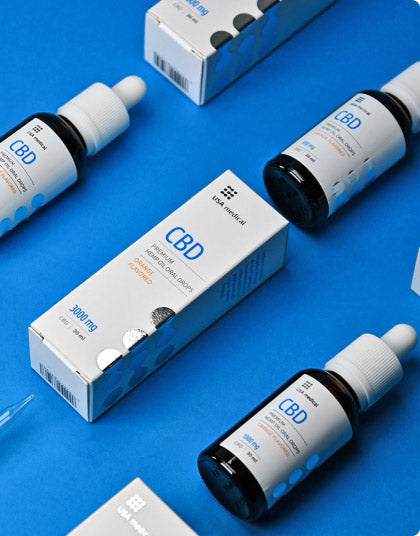
Check Out Our Full Range!
Discover a wide variety of vitamins and CBD oils waiting for you. Dive into the complete USA Medical collection now!

The Story of USA Medical
A Los Angeles Origin
There is always a solution...
The USA Medical team has personally experienced the benefits of plant-based products, which inspired the launch of their business. For them, this is not just work but a mission to help others.
The company's founder spent years visiting doctors in search of a solution to his health issues. By chance, he encountered a natural ingredient he had never heard of before. He tried it, and within a few months, he found a solution to a problem he thought would haunt him for life. This experience motivated him to make these natural ingredients available to others under his own brand.

